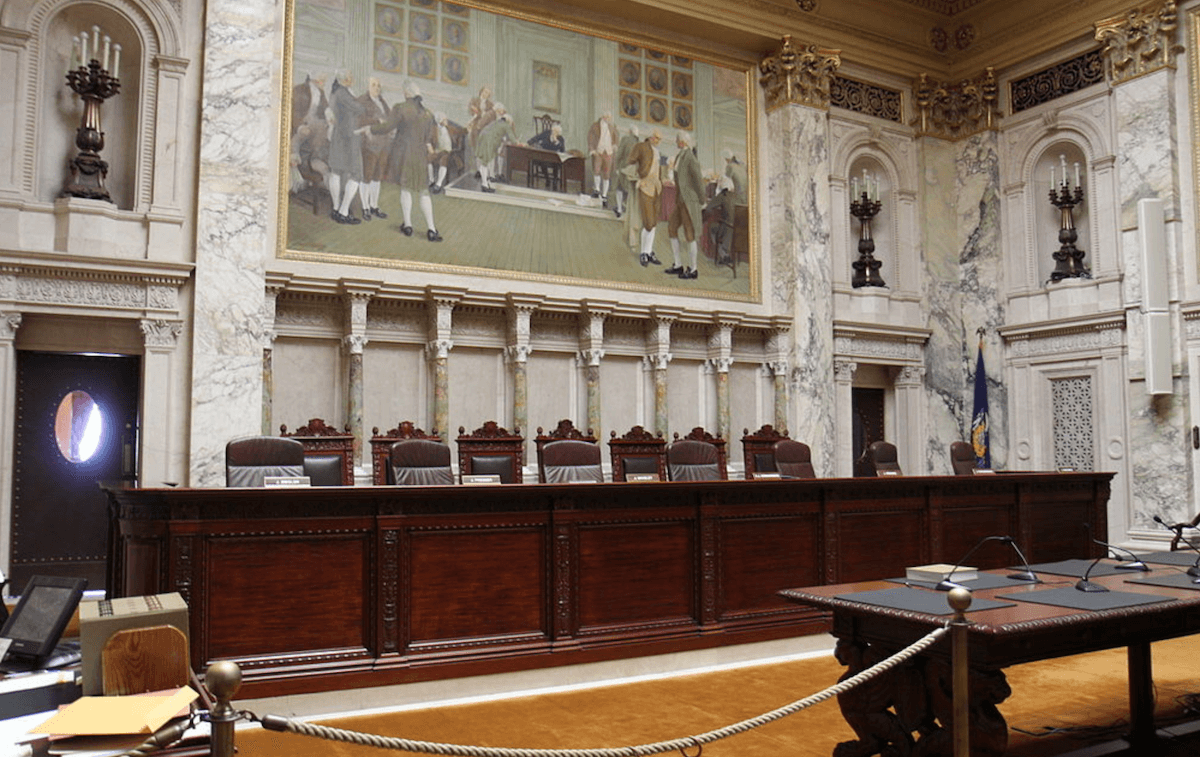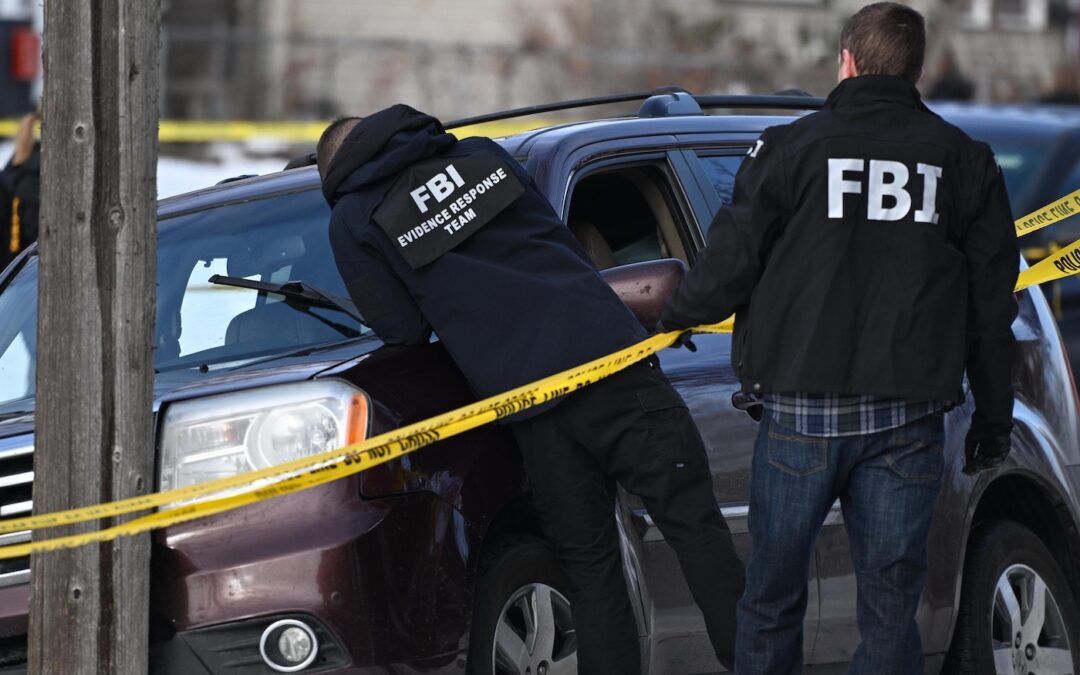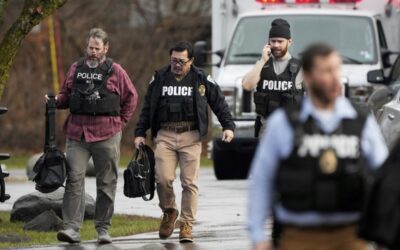
#image_title
State justices also kill waiting period request, so rules die immediately
In the midst of a pandemic that has now killed more than 82,000 Americans and more than 420 in Wisconsin, the state’s Supreme Court on Wednesday ruled Gov. Tony Evers’ administration acted beyond its power by extending the safer-at-home order to contain the spread of COVID-19.
The ruling immediately nullifies the order, which was set to expire May 26. It is now up to county officials to decide which rules should apply in their counties, creating a patchwork of potentially 72 different orders to now govern the state.
At least that will be the case until the Legislature decides whether or not it wants to approve an emergency rule that outlines a state-wide approach that governs businesses and human interaction during a health emergency.
Evers responded Wednesday evening to the decision by saying Republican lawmakers and the four Supreme Court justices who issued the ruling need to “own the chaos” that is about to ensure across the state.
“The Tavern League of Wisconsin has already put out a statement saying it is open season … time to open up,” Evers said.
Evers cited the fact state residents had been following the orders and flattening the curve to the point five of the 6 metrics needed for the state to reopen were met Tuesday.
“We were in a good place,” Evers said. “We are no longer in a good place.”
Within hours of the ruling, Brown, Dane and Rock county officials had passed their own safer-at-home orders.
“In times of confusion and fear, the people of Wisconsin need clear and consistent leadership,” said Senate Minority Leader Janet Bewley, D-Mason. “The court’s decision today only adds to that uncertainty.”
The court’s majority sided with the argument put forth by Republican lawmakers, agreeing officials with the state Department of Health Services should have followed the emergency rule-making process to create a law that determined how the pandemic should essentially have been handled by the state.
Department of Health Services secretary-designee Andrea Palm argued the regular legislative process can take 20 days or more in the best circumstances and swift action was needed to prevent thousands of deaths as the highly contagious coronavirus roared into Wisconsin.
Evers said his administration had what is known as a scope statement ready in the event the court sided with Republicans. A scope statement is the first step in writing an emergency rule.
According to state law, once the scope statement is written, it cannot be published for a certain number of days. In this case, the statement cannot be published until Monday. The administration then has to wait 10 days before they can begin writing an emergency rule. Once the rule is written, it is submitted to a legislative committee for approval.
“Republicans said they did this because they wanted a seat at the table,” Evers said. “But a few members (of this committee) can unilaterally sink the rule.”
The dissent agreed.
“The emergency rules process does not allow for the kind of fits and starts and day-in, day-out modifications that would be required in any comprehensive, real-time response to a statewide epidemic,” said Justice Brian Hagedorn, in writing for the dissent.
More than 40 other states have responded to the current public health crisis by issuing orders as the Evers’ administration did. Wisconsin is the first where opponents have successfully had them thrown out in court. As of Wednesday, roughly 10,900 Wisconsinites have tested positive for the virus and 421 have died.
Assembly Speaker Robin Vos, R-Rochester, and Senate Majority Leader Scott Fitzgerald, R-Juneau, who filed the suit, included a request that any decision to throw out the safer-at-home order include a six-day grace period for public health officials to write new rules that would then be sent to the Legislature for approval.
The court rejected the request.
“I trust that the parties will place the interests of the people of Wisconsin first and work together in good faith to quickly establish a rule that best addresses COVID-19 and its devastating effects on Wisconsin,” wrote Chief Justice Pat Roggensack.
The GOP-controlled Legislature and Evers have a dysfunctional work relationship, having yet to coalesce around any legislature goal or statewide cause since Evers defeated Republican Scott Walker and became governor two years ago.
The Legislature has only met once since the public health emergency was declared and did not introduce, debate or vote on any alternative public safety rules even though they filed suit April 21 to have Evers’ order overturned.
It took lawmakers a month to vote on the COVID-19 relief package put forth by Evers. In waiting so long, Republicans cost the state $25 million in federal reimbursement funds for unemployment claims through the federal CARES Act.
“Over a week ago, I called on the legislature to act immediately,” said Wisconsin Attorney General Josh Kaul. “Unfortunately, it failed to do so, and Republicans in the legislature still have offered no plan to address the coronavirus. They can’t keep waiting to do so.”
A Marquette University Law School poll released Tuesday shows a strong majority of Wisconsin voters approved of safer-at-home restrictions, with 69 percent saying they favored the rules.
However, that support dropped in recent weeks, especially among Republicans and conservatives. Approval of the order in late March, shortly after safer-at-home was enacted, was 86 percent.
The majority acknowledged the overwhelming public support for the stay-home order but said it must be overruled to avoid “monumental mistakes from which our republic may never recover.”
The court once again compared the state’s order, which includes a provision to self-quarantine and work from home, to the experience of Japanese Americans during World War II who were imprisoned at camps within the borders of the United States.
The majority said they were citing the Korematsu case “not to draw comparisons” but “to test the limits of government authority.”
“This decision will undoubtedly go down as one of the most blatant examples of judicial activism in this court’s history,” said Justice Rebecca Dallet. “And it will be Wisconsinites who pay the price.”
Jonathon Sadowski and Julian Emerson contributed to this report.

Wisconsin immigrant advocates say violence ‘must stop now,’ after ICE agent kills Minnesota woman
A Minneapolis woman observing immigration enforcement was shot and killed, raising criticism that ICE raids are “fueled by politics of racism, not...

Meta’s ‘teen safety’ tools are failing Wisconsin kids—and Republicans aren’t helping
Parents and cybersecurity experts want Wisconsin lawmakers to hold companies like Meta accountable when their platforms fail to keep kids safe. When...

11 biggest true crime cases in Wisconsin history
From bank robberies to infamous serial killers, Wisconsin is home to some horrific and unforgettable true crime cases. With its beautiful state...

Radon is High in Wisconsin: How to Protect Your Family
Radon is a naturally occurring, radioactive gas. It can get into your house through cracks in the foundation, walls, and openings around pipes and...




